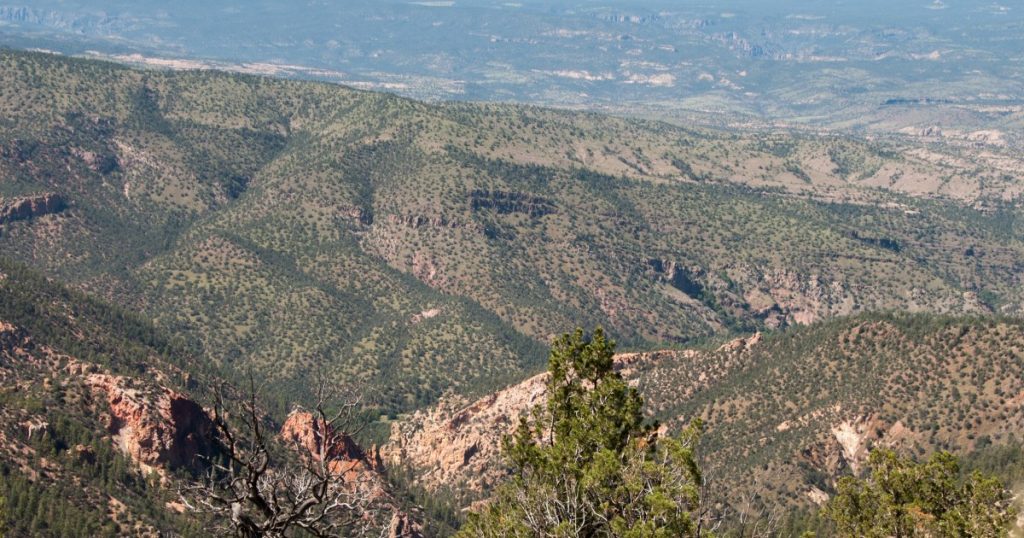
U.S. Forest Service officials plan to shoot wild cattle in New Mexico from helicopters beginning next week to address threats to the environment and visitors.
The operation is scheduled to begin Feb. 23 and last through next weekend, with the area targeted, essentially the Gila Wilderness Ranger District in the Gila National Forest, to be closed Feb. 20 through Feb. 26, Forest Service officials said Thursday.
Between 50 and 150 wild cattle are estimated to roam the lush federal lands of western New Mexico, home to mountain peaks and deep canyons. The carcasses will be allowed to decompose, the officials said.
Forest Service staff will be tasked with ensuring downed cattle will not foul waterways or block trails, according to a Gila National Forest statement.
Forest officials have said predators on land (wolves) and from the sky (some birds) will pick the remains clean, as they’ve done before. And they’ve dismissed arguments that such easy feasting will draw wolves closer to ranches and thus present another danger to humans, saying there’s little evidence this has taken place in the past.
Some ranchers in the area have criticized the plan as inhumane and wasteful, while some environmentalists have endorsed the aerial killing as needed to preserve the area’s environment.
Forest Service officials have long argued the cattle, descended from ranch bovine abandoned by a bankrupt rancher in the area in the 1970s, trample environmentally sensitive grounds, aid erosion, foul waters with their waste, and could carry with them disease and the potential to attack park visitors.
Efforts to round up the cattle have been largely inefficient and unsuccessful, particularly given the area’s foreboding terrain and divergent elevation, they’ve said.
“These unowned feral cattle need to be removed because they are incompatible with the environment, they are destructive, pestilent, offensive (obnoxious) and injurious (inflicting injury) to man and forest resources,” Gila National Forest biologist Jerry Monzingo wrote in biological assessment published last month.
“They could also be carrying diseases that could be transferred to owned, authorized cattle occupying adjacent grazing allotments,” he added.
Ranchers have expressed concerns that shooting is inhumane and that some branded, ranch-raised animals could be mixed in with the feral bovine as some grazing areas in the region have been abandoned and barriers have fallen.
“Our society should be better than this,” Tom Paterson of the New Mexico Cattle Growers’ Association told NBC affiliate KOB of Albuquerque. “We can be more creative and do it a better way where you’re not wasting an economic resource.”
In the past, similar efforts to thin wild animal populations by gunfire were met with lawsuits. It’s not clear if any have been filed in an attempt to halt next week’s plans.
In August 2021, the Forest Service said it had plans to remove the livestock by lethal means and said it would notify all interested parties.
The Center for Biological Diversity has blamed cattle grazing in New Mexico’s wildlands for destroying habitat for indigenous wildlife and creating islands of plant fuel that contribute to wildfire intensity.
It’s endorsing the kill plans.
“We can expect immediate results — clean water, a healthy river, and restored wildlife habitat,” Center for Biological Diversity co-founder Todd Schulke said in a statement.
Todd Miyazawa contributed.
 Latest Breaking News Online News Portal
Latest Breaking News Online News Portal






